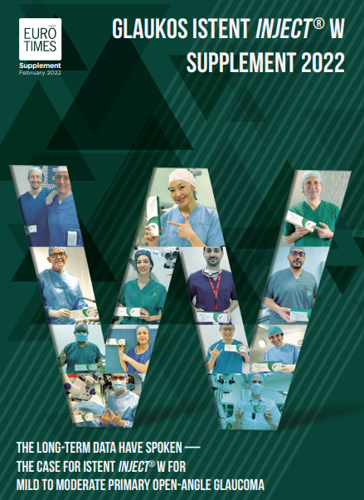Supplements
Supplement: GLAUKOS Istent Inject W Supplement 2022

Affecting an estimated 76 million people worldwide in 2020 (1), glaucoma is the leading cause of irreversible vision loss and the second leading cause of blindness worldwide (2). Open angle glau-coma (OAG) is the most common form, occurring in 74% of diagnosed glaucoma cases (3, 4). It is often seen in conjunction with cataract, with approximately one-in-five cataract patients also needing glaucoma medication (5). These numbers present both a daunting challenge and a major opportunity. Elevated intraocular pressure (IOP) remains the major risk factor for glaucoma, and most current treatments, including pharmacological, laser and surgical interventions, focus on lowering IOP (6). Yet each have drawbacks. Ocular hypotensive medications are reasonably safe and effective, but their pressure-reducing effects may wane over time, they can lead to ocular surface disease and conjunctival hyperemia, and adherence is notoriously problematic (7-11). Laser trabeculoplasty reliably reduces IOP but can lose effectiveness after three to five years (38-40) and some forms may induce inflammation in the intermediate term (12). And while incisional surgeries such as trabeculectomy and tube shunt implantation can reduce IOP dra-matically, they expose patients to safety risks, including endophthalmitis and hypotony, that can persist for the lifespan of treatment (13-15).
